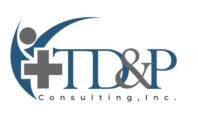Certified coding auditors ensure medical documentation is accurate and regulatory-compliant. They help healthcare providers avoid financial penalties and support legal cases with precise documentation. At TD&P Consulting, we offer expert-certified coding audit services, empowering healthcare organizations to identify and correct errors while ensuring compliance with industry regulations. This article explores their critical role, the common errors they address, and how they strengthen healthcare and legal outcomes.
Key Takeaways
- Certified coding auditors are essential for ensuring accurate medical documentation, preventing compliance issues, and protecting healthcare providers from legal and financial repercussions.
- Their proactive auditing and education efforts help identify common coding errors, streamline case preparation, and enhance the credibility of medical evidence in legal contexts.
- Engaging certified coding auditors early in the legal process supports the development of stronger defenses and better case outcomes through meticulous documentation and compliance with coding standards.

The Importance of Certified Coding Auditors in Medical Legal Cases
Certified coding auditors are pivotal in maintaining the integrity of medical documentation and ensuring compliance with legal standards. Their role extends beyond data entry; they possess in-depth knowledge of documentation requirements, helping healthcare providers avoid compliance-related penalties and secure appropriate reimbursements. Their expertise ensures financial stability and operational efficiency for healthcare providers.
For example, a multi-specialty healthcare provider avoided $750,000 in penalties after a certified coding auditor identified and corrected significant coding discrepancies in their medical records. This proactive approach not only ensured compliance but also restored the provider’s financial stability.
Additionally, certified coding auditors provide crucial support in legal cases. Their meticulous attention to detail strengthens the credibility of medical evidence and protects healthcare providers from liability. By ensuring every code and procedure is properly documented, auditors make it more difficult for opposing counsel to dispute the validity of evidence.
Strengthening Medical Legal Cases Through Accurate Coding
Accurate medical coding is not just a technical requirement; it is essential for protecting healthcare providers from liability and fraud allegations. Certified coding auditors ensure medical records are precise and reliable, safeguarding healthcare organizations against financial and legal penalties.
Certified coding auditors provide insights that streamline case preparation. By identifying discrepancies and trends in coding practices, they reduce vulnerabilities in legal defenses. For example, validation of medical documentation by certified auditors ensures consistency and compliance, minimizing risks during legal proceedings.
In one case, a hospital system faced litigation over disputed medical expenses. The involvement of certified coding auditors revealed that 20% of claims had been improperly coded, weakening the opposing counsel’s arguments. Their findings directly influenced the favorable outcome for the healthcare provider.
Common Errors Addressed by Certified Coding Auditors
Common coding errors, such as upcoding, downcoding, and improper use of modifiers, have significant financial and legal implications. Certified coding auditors play a crucial role in addressing these errors, ensuring accurate reimbursements and compliance with regulatory standards.
For instance, upcoding can inflate reimbursements, risking penalties, while downcoding can result in underpayments that undermine financial stability. Regular audits by certified coding auditors help identify and rectify these issues before they escalate.
In one audit, a certified coding auditor discovered repeated instances of modifier misuse in a regional healthcare network. Correcting this issue saved the network over $500,000 annually and improved compliance with regulatory standards.
Continuous education enables certified coding auditors to stay updated on coding guidelines and mitigate risks effectively. Their role extends to educating medical coders, fostering a culture of accuracy and compliance across healthcare organizations.
Ensuring Compliance with ICD-10, CPT, and HCPCS Codes
Compliance with coding standards such as ICD-10, CPT, and HCPCS is critical for avoiding financial losses and legal penalties. Certified coding auditors meticulously review clinical documentation to ensure codes align with diagnoses and procedures, bolstering the credibility of medical evidence in legal cases.
In a real-world example, a small private practice outsourced its coding audits and identified 15% of claims that had been under-coded. By correcting these errors, the practice recovered $150,000 in revenue and avoided compliance risks with insurance providers.
Certified coding auditors leverage advanced tools, such as EHR systems and automated coding software, to enhance accuracy and compliance. Staying informed about regulatory updates from organizations like CMS and OIG allows auditors to remain proactive in safeguarding healthcare providers from penalties.
Leveraging Certified Coding Auditors for Effective Case Preparation
Engaging certified coding auditors early in case preparation ensures coding discrepancies are resolved before they impact legal outcomes. Their expertise helps legal teams build stronger cases by ensuring all records are accurate and complete.
In one medical malpractice case, certified coding auditors identified errors in the opposing party’s documentation, including unsubstantiated procedure codes and incorrect patient demographics. These findings discredited the plaintiff’s claims and led to a favorable settlement for the healthcare provider.
Certified coding auditors also uncover opportunities for Clinical Documentation Improvement (CDI), streamlining documentation processes and reducing physician queries. By resolving coding issues proactively, auditors prevent legal challenges and bolster the strength of case defenses.
Comprehensive Documentation and Its Impact on Claims
Accurate documentation substantiates claims in legal cases and ensures proper reimbursement. Certified coding auditors enhance clinical documentation by addressing discrepancies early, leading to more reliable medical records and improved legal outcomes.
In another case, a retrospective hospital audit revealed under-coded claims amounting to $2 million in lost revenue over three years. Correcting these errors significantly boosted the hospital’s financial health and compliance.
Small practices also benefit from outsourcing audits. For instance, a pediatric clinic identified consistent errors in diagnosis codes, leading to a 30% increase in insurance reimbursement rates after corrections were implemented.
Continuous Education and Expertise of Certified Coding Auditors
Certified coding auditors remain at the forefront of their field through continuous education and training. Staying updated on evolving guidelines allows them to mitigate compliance risks and improve case outcomes.
Auditors also provide education to healthcare facilities, reducing errors and fostering a culture of improvement. For example, a certified coding auditor trained a hospital’s coding team on recent ICD-10 updates, reducing coding errors by 40% within six months.
This ongoing learning enhances the accuracy of coding practices, ultimately supporting both healthcare providers and legal teams.
How TD&P Consulting Supports Legal Cases with Certified Coding Auditors
At TD&P Consulting, we provide expert-certified coding audit services to support healthcare organizations and legal teams. Our certified auditors conduct detailed critiques, evaluate medical causation, and provide insights into life care plans and expense valuations. These analyses often serve as the foundation for fair settlements and successful legal strategies.
By leveraging the expertise of certified coding auditors, TD&P ensures that medical records are accurate, compliant, and defensible. In one recent case, TD&P’s auditors uncovered key coding discrepancies that led to a $1.2 million settlement in favor of our client.
Real-World Examples of Certified Coding Auditors in Action
Certified coding auditors play a pivotal role in ensuring the integrity of medical evidence in legal cases. For example, identifying and correcting coding errors, such as upcoding, has helped clients avoid penalties and secure proper reimbursements.
A national healthcare provider avoided $1.5 million in fines by addressing improper documentation during a coding audit conducted by certified auditors. Their intervention not only prevented financial losses but also strengthened the provider’s compliance framework.
Contact TD&P Consulting
Certified coding auditors are indispensable in medical legal cases, ensuring accurate documentation, proper reimbursement, and regulatory compliance. At TD&P Consulting, our certified auditors provide expert analyses, critiques, and assessments to strengthen legal cases and support healthcare providers. To learn how our services can benefit your organization, contact us today.
